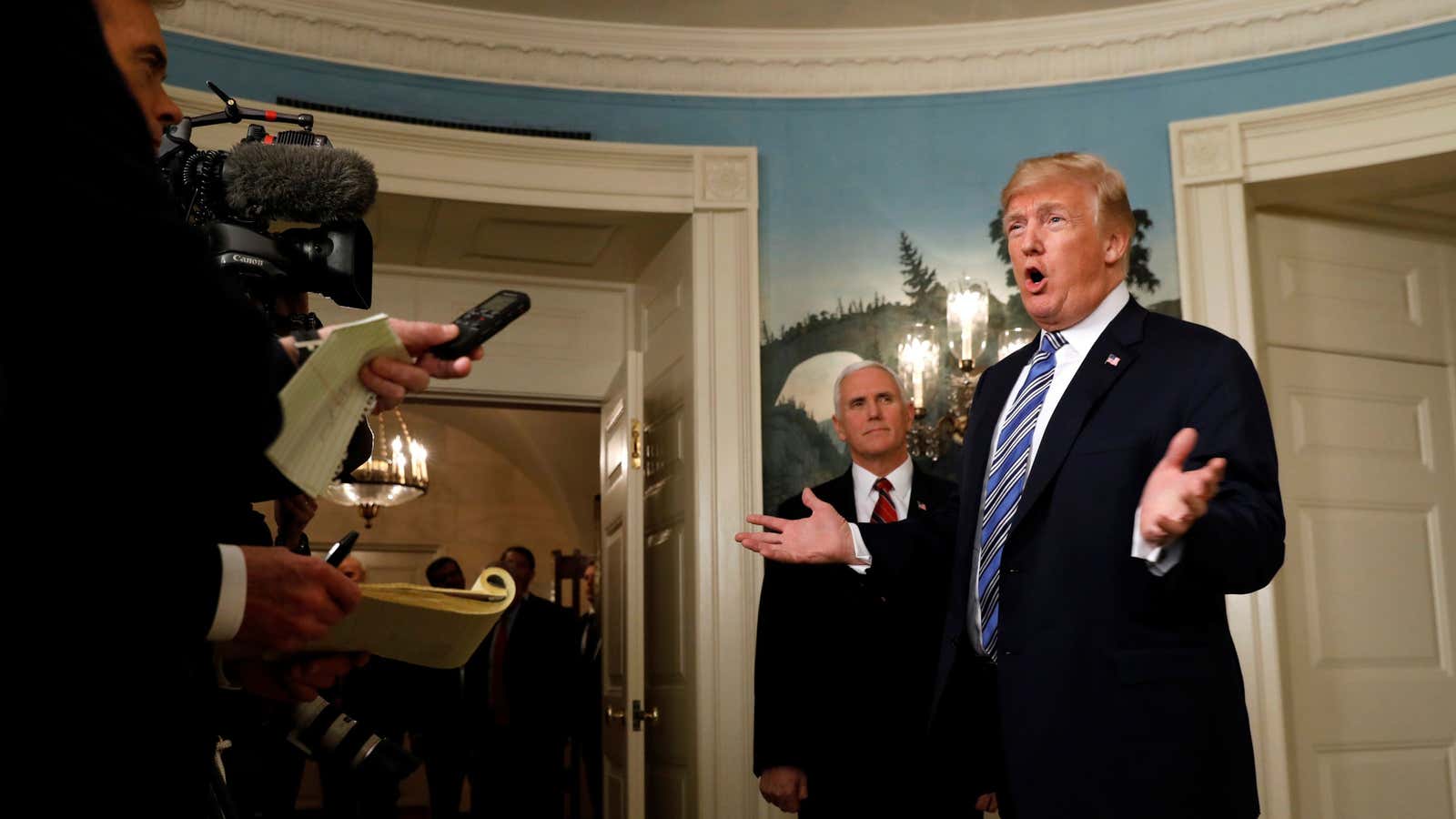The recent departure of attorney John Dowd from the team representing president Donald Trump in the Russia investigation—and the reported reluctance of other attorneys to take on the case—has opened up promotion opportunities for the remaining lawyers.
This week, lead attorney Jay Sekulow announced that he was promoting assisting attorney Andrew Ekonomou to a more central role in the president’s defense. (Trump, for his part, has said on Twitter that “many lawyers and top firms” do in fact want to take on his case, they just can’t, and anyway his legal team is great so they don’t need to.)
Ekonomou is an unusual choice for what may end up being one of the most complicated cases in modern US history. Currently employed under contract as an assistant district attorney in Georgia, Ekonomou has a doctorate in medieval studies and no experience with cases anywhere near as complex as Special Counsel Robert Mueller’s probe into Russian interference in the 2016 election.
He mostly prosecutes murders, he told a Reuters reporter. When pressed to describe his biggest recent cases, Ekonomou responded, “That’s basically it. Nothing earthshaking.”
Is he daunted by the challenge facing him in Washington? Not at all.
“I’ve been tested plenty of times,” Ekonomou told Reuters. “Just because you’re not a Beltway lawyer doesn’t mean you don’t know what you’re doing.”
Ekonomou’s confidence could be bravado. He could have a previously untested knack for defending sitting presidents that he’ll finally get to show off. But it could, just possibly, be the result of a psychological quirk known as the Dunning-Kruger effect.
Coined in 1999 by social psychologists David Dunning and Justin Kruger, the Dunning-Kruger effect refers to the inability of incompetent individuals to recognize their own incompetence. People without skills, they argued, don’t possess enough skills to accurately assess just how unskilled they are. This lack of understanding can be blissfully insulating, allowing us to trundle along confidently (if ineptly) through the world.
“What’s curious is that, in many cases, incompetence does not leave people disoriented, perplexed, or cautious,” David Dunning wrote in 2014. “Instead, the incompetent are often blessed with an inappropriate confidence, buoyed by something that feels to them like knowledge.”
Multiple pundits have noted what appear to be examples of the Dunning-Kruger effect on display in the Trump administration. If it does turn out that there’s a lack of evidence to support Ekonomou’s confidence, his employers may not even notice.
